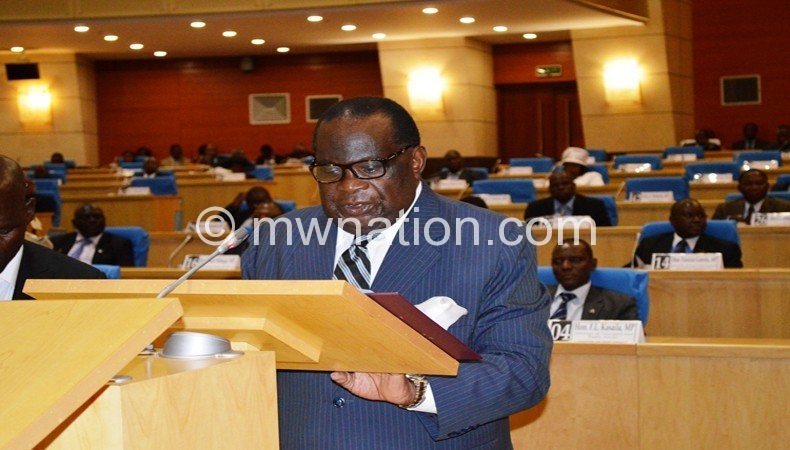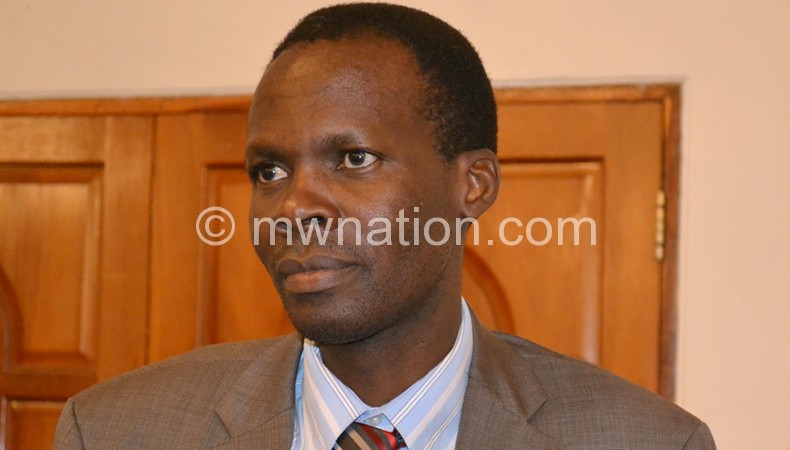Government risks bankruptcy
25% of budget swallowed by public servants
Experts have warned government that it risks bankruptcy if it grants civil servants a salary increase as the country’s public sector salaries already consume about 25 percent of the national budget.
Economic and human rights observers have described the Malawi national budget as unfairly tilted towards recurrent expenditures—of which at least 34 percent is personal emoluments (wages or fees), thereby denying the country’s citizens the right to development.
The Civil Service Trade Union (CSTU) is pushing government to disclose, within 21 days, what increment percentage it will allocate for public service salaries and wages.
That nudge for an increase—which some well-placed sources say may be as high as 25 percent—could put the increase over the past two financial years to a cumulative jump of around 80 percent for a workforce that generates little wealth.
And if this goes on, the country’s public service salaries and wages are set to slide over the internationally recognised standard cut-off point of eight percent of gross domestic product (GDP).
Malawi’s current salary to GDP ratio, according to Treasury, is at around 6.9 percent, just 1.1 percentage points shy.
Civil servants’ share of the national cake is also staggering.
Minister of Finance, Economic Planning and Development Goodall Gondwe presented to Parliament for deliberation a K901.6 billion (US$2.1 billion) national budget expected to cater for over 16 million Malawians.
In the proposed national budget, government seeks to increase the annual salaries and wages from the current K198 billion (US$440 million) to K228 billion (US$506.7 million), which would result in 25 percent of the financial plan being spent on salaries and wages for less than 200 000 public servants out of 16 million people.
What that means is that around one percent of the population grabs a quarter of the annual expenditure plan, leaving 99 percent of Malawians scrambling for the remaining 75 percent in which the civil servants also partake by benefitting from government services.
The public service salaries and wages will also consume 34 percent of the recurrent budget, which government has put at K674 billion in the proposed budget.
That leaves just K446 billion (US$991 million)—66 percent for other recurrent expenses, including buying medicines, stationery, fuel, allowances and maintenance of fixed assets.
“The recurrent budget will be at K674.6 billion (US$1.5 billion) while the development budget will amount to K224 billion (US$497.8 million) in 2015/16 financial year,” reads the brief budget note issued by the Ministry of Finance, Economic Planning and Development after the presentation of the budget on May 22 2015.

Reacting to the situation, Catholic University head of economics department Gilbert Kachamba said a normal budget is supposed to have 30 percent of it as recurrent expenditure, which means that the current one is abnormal.
But this year, the recurrent budget constitutes 75 percent of total expenditure—meaning that the fiscal plan is heavily skewed towards consumption at the expense of investment and production, which are key drivers of economic growth.
Kachamba said: “Salaries should be in line with the national income. Looking at the current economic situation, it is not appropriate that the nation should suffer because government wants to pay somebody.”
He said the country’s tax base is “very small” and any increase in salary expenditure would lead government into bankruptcy.
Ministry of Finance spokesperson Nations Msowoya said at the moment Treasury is not making any effort to meet the demands of the Civil Service Trade Union (CSTU).

He said: “You will appreciate that the Minister of Finance already announced in the budget a proposed salary increment for the civil servants. In our view, the proposed increment is what government can afford in the 2015/16 budget.
“However legitimate the civil servants’ demands maybe, the point to note is that government cannot afford a higher amount than what we have provided in the budget for 2015/16 [financial year].”
Msowoya said the country’s current share of salaries to GDP, at around 6.9 percent, may still be below the international benchmark of eight percent, but is still heading towards unsustainable levels.
“The point to note is that there is need to balance between what is allocated for salaries and money meant for ORT, otherwise, when all funds are exhausted on paying salaries, government will have no funds to cater for things such as stationery [and other] required inputs and tools to enable civil servants do their work.
“We, therefore, appeal to our fellow civil servants to reconsider their position and accept the provisional increment as proposed in the budget,” he said.
Catholic Commission for Justice and Peace (CCJP) national secretary Chris Chisoni said there is no moral justification for CSTU’s demands.
He said: “The demands that civil servants are making must also reflect the other demands from Malawians on the fulfilment of the right to development. Government must do what it has the capacity to do and this must be balanced with other priorities.”
In a letter to government, CSTU said it has information that what government was offering the civil servants was below what was agreed.
In an earlier interview, Chief Secretary to the Government George Mkondiwa confirmed receiving the CSTU letter and said the matter was being handled by Ministry of Labour and Manpower Development, government’s advisers on labour-related issues.
But during negotiations between CSTU and the Government Negotiating Team (GNT), the two parties agreed to give junior staff higher percentage as one of the conditions for the 2015/16 salary revision to substantially match prevailing costs.






Is it that our tax base is small or we are avoiding expanding it and also avoiding to collect taxes properly for political and personal gain thereby starving the nation of its true income. If someone can build those mansions in Malawi, what amount of tax are they paying? What if the person is a civil servant or some foreigner paying off the tax guy to turn a blind eye? How about that shop keeper refusing card payments to avoid tax?